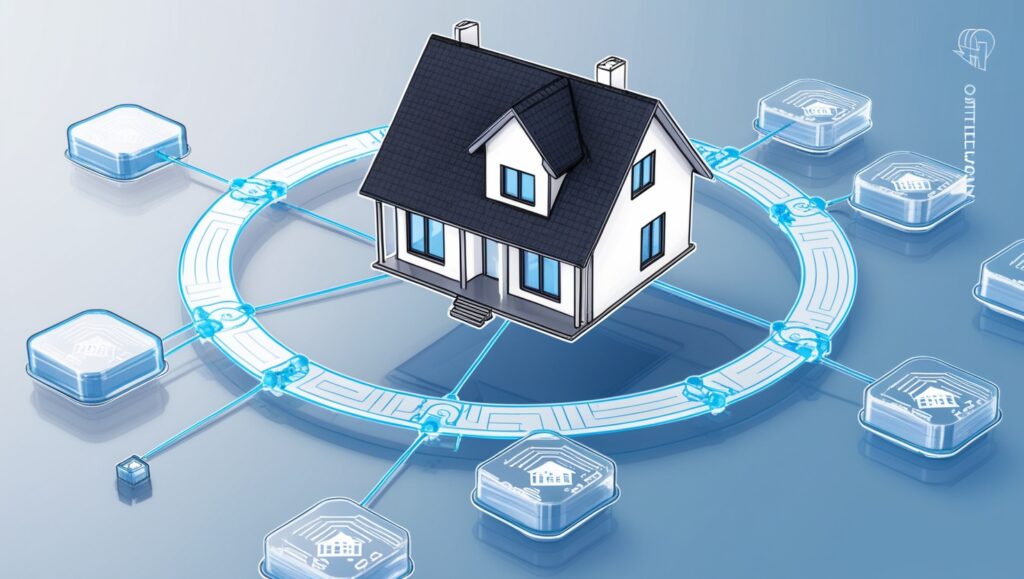
How Is Blockchain Used in Real Estate?
Blockchain technology is transforming industries, and real estate is no exception. Known for its ability to deliver transparency, enhance security, and improve efficiency, blockchain has the potential to solve long-standing problems in the property market. Whether it’s title disputes, lengthy transactions, or limited access to investment opportunities, blockchain is opening new doors for real estate professionals and investors alike. Let’s break down how this technology is making an impact.

Understanding Blockchain Technology
Before digging into its applications in real estate, it’s important to grasp what blockchain is and how it works.
What Is Blockchain?
Blockchain is a type of digital ledger that records transactions across a network of computers. Unlike traditional databases, blockchain is decentralized. This means no single entity controls it, which helps ensure that the data is secure and tamper-proof.
Picture a chain made of blocks. Each block contains information—like transaction details—and links to the one before it. Once a block is added to the chain, it can’t be altered without the network’s consensus. This structure makes blockchain trustworthy and reliable.
Key Components of Blockchain
To understand how blockchain works, let’s look at its main parts:
- Blocks: Each block holds data, a timestamp, and a unique code called a hash.
- Chains: The blocks connect in sequence, forming a secure chain of records.
- Nodes: These are individual computers that maintain a copy of the blockchain. Nodes validate new transactions to ensure accuracy.
- Consensus Mechanisms: This is how nodes agree on transactions. Popular methods include Proof of Work and Proof of Stake.
These elements work together to create a secure and transparent system.

Blockchain Applications in Real Estate
Blockchain’s decentralized nature makes it a powerful tool for solving some of real estate’s biggest challenges. Here are some practical ways it’s being put to use.
Property Transactions and Smart Contracts
Traditional property transactions are time-consuming and involve multiple intermediaries. Blockchain, through smart contracts, automates this process.
Smart contracts are self-executing agreements coded on the blockchain. Once conditions are met—like payment being made—ownership transfers automatically. This speeds up transactions and reduces the need for lawyers or brokers, saving money and time.
Title Management and Verification
Title searches can be a headache. They’re often slow and prone to errors, leading to disputes over property ownership. Blockchain offers a solution by storing title records in an unchangeable digital ledger.
This technology ensures every transaction is documented, creating a clear and trustworthy ownership history. This eliminates the need for expensive title companies and minimizes fraud risks.
Fractional Ownership of Real Estate
Want to own a piece of high-value property but don’t have the funds for an entire purchase? Blockchain enables fractional ownership.
Through tokenization, property can be divided into smaller shares, which are then sold as tokens. This makes investing in real estate more accessible to smaller investors. It also opens up opportunities to trade property shares on blockchain-powered marketplaces.

Advantages of Blockchain in Real Estate
The benefits of blockchain go far beyond convenience. Let’s explore the major advantages this technology brings to the sector.
Increased Transparency
Blockchain provides an open, tamper-proof transaction history. Buyers, sellers, and investors can view all relevant transaction data, reducing the risk of fraud and miscommunication. Everyone involved in the process has access to the same set of records, creating trust.
Enhanced Security
Data stored in a blockchain is highly secure. Thanks to its decentralized structure, it’s nearly impossible to alter or hack. This makes blockchain ideal for protecting sensitive data, such as financial information and ownership records.
Cost and Time Efficiency
Blockchain cuts out middlemen by automating processes. This reduces transaction costs, like legal fees and brokerage charges. Transactions also happen faster because there’s no need for back-and-forth paperwork or manual verification.
Challenges and Limitations of Blockchain in Real Estate
While the potential is huge, blockchain adoption in real estate isn’t without its hurdles. Here are the main challenges the industry faces.
Regulatory Challenges
The legal framework around blockchain is still evolving. Different countries have different rules, and the lack of consistency makes it hard to implement blockchain on a global scale. Governments will need to clarify how blockchain-based transactions are taxed and regulated.
Technology Adoption Barriers
Not all real estate professionals are ready to embrace blockchain. Many lack the technical knowledge or resources to adopt this new technology. Education and training will be key to overcoming this barrier.
Interoperability Issues
Most real estate platforms rely on traditional systems that don’t integrate well with blockchain. Bridging the gap between old and new systems remains a major challenge. Until solutions are developed, widespread adoption may be slow.
Conclusion
Blockchain is shifting the way real estate transactions are handled. From automating deals with smart contracts to enabling fractional property ownership, its applications are creating a smoother and more transparent industry. While hurdles like regulation and adoption still exist, the potential benefits are hard to ignore. As blockchain continues to evolve, it’s likely to become a cornerstone of the real estate market, offering a fairer, faster, and more secure way to buy, sell, and invest in property. The future of real estate may very well lie on the blockchain.
